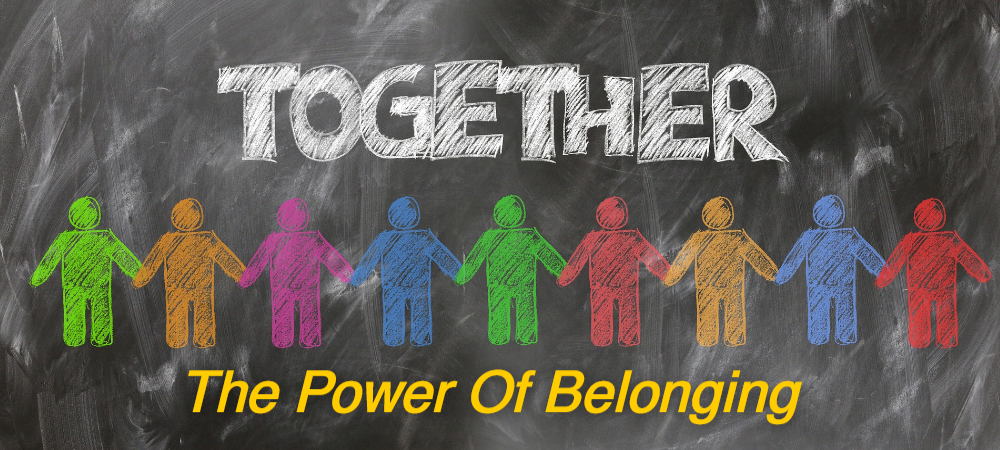
belonging: the human emotional need to be an accepted member of a group
Humans are hard-wired to be social. From our earliest history on this planet, “together” was a prime directive – families, clans, nomadic bands, tribes, colonies, settlements, towns, cities, provinces/states, nations – providing a sense of security, support, acceptance and identity as a group member.
Belonging is about more than that...
Belonging is about more than just being a group member or simple acquaintance with other group members. Humans have an inherent desire to belong – to seek acceptance and inclusion – to be an important and valued part of a group that is, collectively, greater than themselves.
In Maslow’s famous “Hierarchy Of Needs,” the need for love and belonging is central to humans finding fulfillment in their lives. That basic, innate desire to belong is at the core of our humanity.
In early history, banding together was often a function of practicality – for protection, better hunting or gathering efficiency and sharing resources. As civilization became more complex, groups became more diverse and complex. Social groups were often based on sharing commonalities – religious groups, political groups, clubs, sports teams, community organizations.
Group members often compare themselves to other more prominent members of the group to assess how well they fit in – leading to bending attitudes and behaviors to better conform to the group’s norms and beliefs to gain more acceptance.
Recent history has changed what belonging means...
In recent history, this innate desire to belong has been perverted into intense political tribalism that polarizes societies throughout the modern world and leads to binary choices rather than shades of gray - to dislike and distrust of “the other”– a dangerous trend that is worthy of more deeply exploring in a separate post.
In this post I would like to focus on the effect of aging on our sense of belonging. I would contend that, in the Western world, aging has become the enemy of belonging. Unlike in traditional Eastern societies where aging family members and senior members of social groups are revered, honored and respected for their wisdom and experience, Western cultures have evolved in a different direction.
Children are encouraged to “leave the nest” for college, work or marriage – often too far away for consistent social interaction - leaving aging parents and grandparents to live lonely lives relatively alone or in artificial social or eldercare communities for “seniors.” Elder wisdom, experience (and higher compensation) is often discriminated against in corporations and other business settings.
The sense of belonging is no less desired or needed as we age. Yet nurturing that sense of belonging becomes more challenging with each passing year. Our Western societies are more focused on the vitality of youth and less on the comfort, security and fullness of life valued by our aging population.
So what does that mean?
It means that we seniors are pretty much on our own to find meaning and fulfillment in our lives. That is the motivation for starting the EverAgeless website and blog. We are committed to encouraging and supporting our innate desire to belong to a community of like-minded people who refuse to be confined by or defined by age.
We must not give in to feelings of disappointment or regret that we are less important to our families, our employers or our social groups as we age. We must proactively seek out ways and find relationships that will stimulate our sense of meaning and fulfillment in our lives. We cannot wait for opportunities to come to us. We must be proactive.
It is so much easier if we can find like-minded souls who share our desire and commitment to an ageless, ever-aspiring life.
I invite you to join our EverAgeless community. We’re here to inspire you and help you find the meaning and fulfillment you deserve.
Here is my favorite TED Talk on belonging.